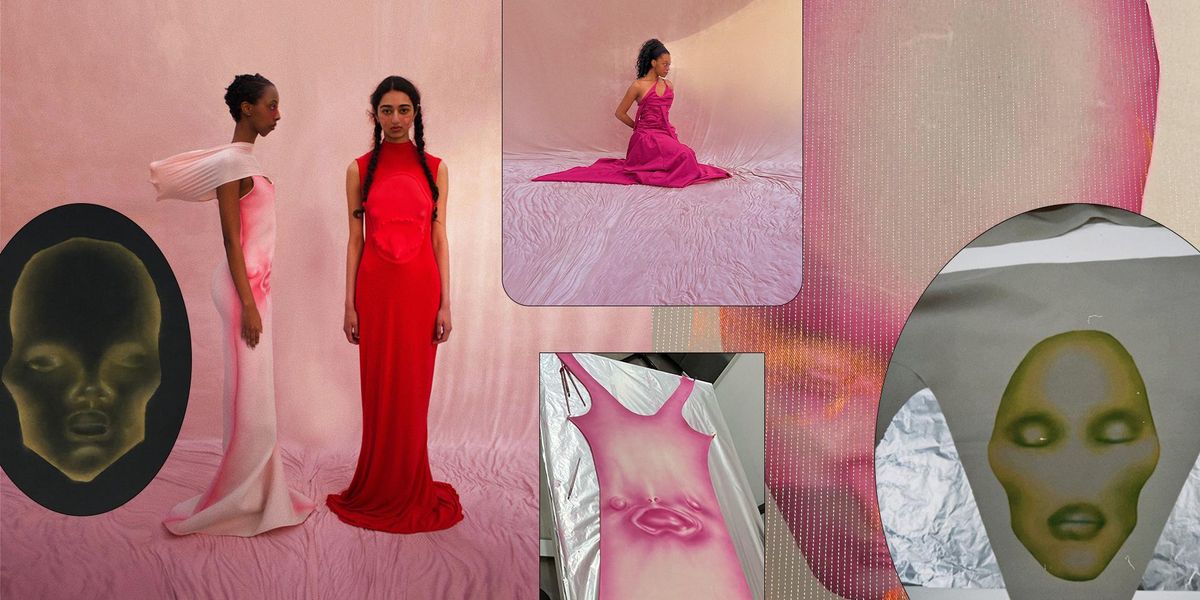
Few designers combine sustainability and design as well as Anika Leila, the British-South Asian designer who went viral this year for her spooky face prints made from expired makeup and textile waste.
The recent Central Saint Martins (CSM) graduate’s debut collection, titled Anika’s Odyssey, featured sleek, sexy garments projecting ghoulish faces from nightmares. Her debut excited the internet with many fans praising her for using responsible production methods on trendy designs.
Leila's collection is named after a game she played as a young girl where she would emulate the Odyssey’s journey and search for her toy bunny while navigating different villainous creatures along the way. By referencing monsters from her youth, Leila says she's been reflecting on her inner child and designs the clothes she has always wanted to wear.
“My graduate collection process was very much a trial and error at the beginning,” Leila tells PAPER, joking that she discovers new pieces of herself every few weeks. With this in mind, Leila continues to build up her design ethos and finds her own experiences to be meaningful for the brand's growing foundation.
Every face or hand-painted print on Leila's garments are placed intentionally to represent memories. In some dresses, this expresses itself from within, protruding from the fabric with subdermal sculptures that look like sharp fangs, open mouths and eyeballs. One thing Leila enjoys is the variety of reactions to her work. She is confident in her own inspiration, but says she loves "the fact that the narrative is inconsistent and personal to everyone."
Leila grew up watching her grandmother make garments by hand — a gesture of love within Indian families, which inspired her goal of working as sustainably as possible today. As a result, the designer never uses machines.
Further pulling from family and community, Leila utilizes ideas and materials from those around her. She depends on fabric waste, sourcing from Southall, West London — a prominent South Asian immigrant community. People in her network also donate used and expired makeup for her to develop prints, which she finishes with a sealant to ensure it lasts.
Looking ahead, Leila says she's excited by the vagueness of her future as a recent graduate, and is eager to travel and create "a habit of reflection to aid not just my career but my personal life too."
Photos courtesy of Anika Leila